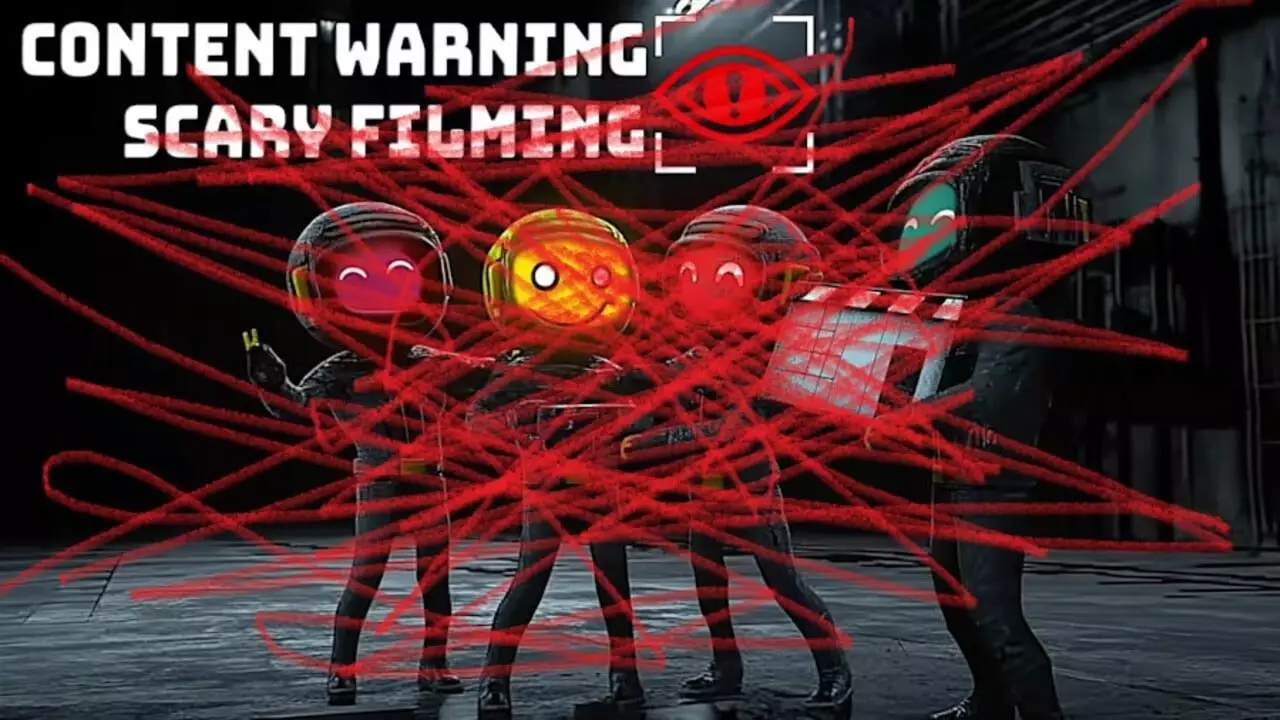In the ever-evolving landscape of video games, originality is a prized goal for developers. However, there exists a troubling trend of clones saturating the market, especially within popular genres like horror. A shining example of this phenomenon is Landfall’s “Content Warning,” a first-person co-op horror game that captured the gaming community’s imagination upon its release in April 2024. With its refreshing humor and authentic scares, the game quickly amassed a cult following, sparking a surge of interest across various platforms. But with success comes imitation, and now we see a troubling rise of copycat games vying for attention.
The copycat phenomenon is particularly appalling when discussing horror games, where the premise of a scared audience requires genuine creativity to deliver both thrill and entertainment. “Content Warning: Scary Filming,” set to launch tomorrow, represents one such opportunistic endeavor. With its derivative concept and eerily similar visuals to Landfall’s hit, it’s hard to ignore the blatant attempt at capitalizing on a pre-existing brand and fanbase. Describing itself as a single-player experience that echoes the essence of co-op gameplay suggests confusion, reflecting an industry desperate for innovation but often resorting to cheap imitation.
The Impact of Popularity on Game Integrity
The road to success in the gaming industry is fraught with challenges, and an unexpected side effect of a popular title like “Content Warning” is the flood of scams and cheap knock-offs that follow. A recent video from Landfall highlights their awareness of these clones, categorically denouncing them as “unofficial” and “unsanctioned.” This raises significant concerns about intellectual property rights and the integrity of the gaming industry as a whole. Landfall’s plea for gamers to stay informed and vigilant reflects the frustrating reality many developers face in their quest to create unique and engaging content.
The developers behind the original “Content Warning” have reinforced their commitment to a quality product by expressing intentions to expand onto consoles in the future. A path forward appears promising, albeit gradual. Despite this frustrating setback with clones, loyal gamers continue to support the original work, as indicated by its impressive 54,033 user reviews and a ‘Very Positive’ rating on Steam. Such metrics reveal that consumers can indeed discern authentic creativity from soulless imitation, emphasizing the importance of continued innovation in developing compelling gaming experiences.
Industry Response to Imitation
The presence of repackaged and resold clones on platforms like the Nintendo Switch raises uncomfortable questions about the protocols in place for game approvals. As seen with other titles such as Steelkrill’s “The Backrooms 1998,” there are examples of blatant copyright infringement leading to swift removal from eShop. However, it still begs the question—how many more slip through the cracks, and why is so little being done to address the rampant copying?
While unique horror experiences deserve their moment in the spotlight, reckless abandonment of innovation alongside rampant imitation threatens the industry landscape. Gamers are not just looking for a product; they are yearning for authentic experiences that resonate with their emotions and challenge conventions. As true fans of the genre, we must pave the way for originality, championing developers with fresh, creative visions. The future of gaming depends on the support and advancement of authentic creativity, which requires our voices to be heard in the ongoing battle against cloned mediocrity.

